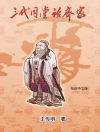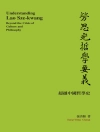The ‘Tâo Teh King, ‘ attributed to the ancient Chinese philosopher Laozi, is a foundational text of Daoism that intricately weaves together philosophy and poetry. Comprising 81 chapters, this profound work explores the concept of the Dao (the Way) and the Teh (virtue), presenting a vision of harmony with the natural world. Written in a sparse, yet evocative style, the text employs paradox and metaphor to impart wisdom about governance, personal conduct, and the art of living in accordance with the Dao, challenging conventional notions of morality and societal norms. Laozi, a figure shrouded in legend, is believed to have lived in the 6th century BCE. His experiences as a philosopher and historian in the court of the Zhou dynasty likely shaped his worldview, leading him to advocate for a return to simplicity and spontaneity amidst societal excess. His teachings emphasize the importance of humility and restraint, reflecting the tension between personal enlightenment and the demands of political life, which resonates throughout the ‘Tâo Teh King.’ This text invites readers to embark on a transformative journey toward self-discovery and inner peace, making it essential reading for anyone interested in Eastern philosophy, spiritual practice, or the exploration of harmony in a turbulent world. Its timeless wisdom continues to inspire and challenge individuals across cultures, making it a profound addition to any literary or philosophical library.
About the author
Laozi, also rendered as Lao Tzu, is a legendary figure in Chinese culture and an esteemed philosopher credited with founding Taoism, one of the country’s most influential religious and philosophical traditions. His life is shrouded in legend and the precise historical details are the subject of scholarly debate, but he is traditionally thought to have lived in the 6th century BCE. Laozi is most famous for composing the ‘Tao Te Ching’ (also known as ‘Tâo Teh King’), a fundamental Taoist text that has shaped Chinese thought and spirituality for over two millennia. This classic work, comprised of 81 brief chapters, is an enigmatic yet profound treatise on the nature of the Tao (‘the Way’), the underlying principle of the universe, and Te (‘virtue’), the expression of living in harmony with the Tao. Laozi’s philosophy advocates simplicity, naturalness, and a life in alignment with the Tao, exerting profound influence on Chinese aesthetics, ethics, and statecraft. His literary style is characterized by its economy of language, paradox, and deep metaphors, capturing elusive spiritual insights. Though Laozi himself remains an enigmatic figure, his teachings continue to resonate, with the ‘Tao Te Ching’ transitioning beyond its cultural origins to become a global spiritual cornerstone.












